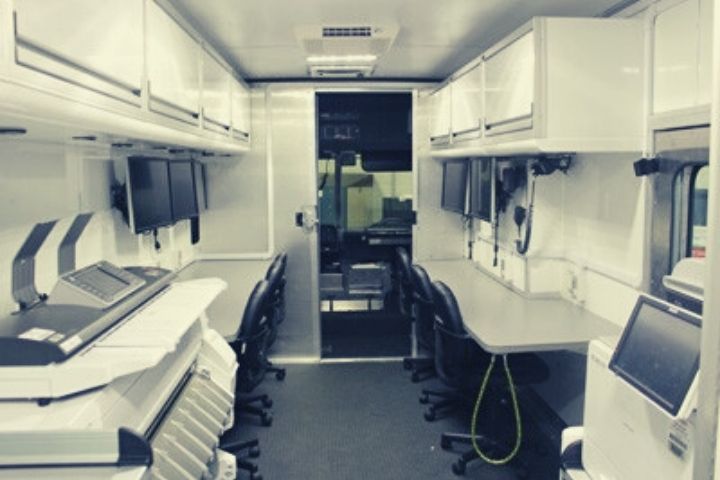What Is a Mobile Command Center?

Though the unassuming delivery truck stationed yards from a bank robbery or drug bust is a movie motif we’re all familiar with, we may not know these covert surveillance vehicles by their real name: a mobile command center. By definition, a mobile command center is a bus, van, or trailer that serves as a primary workstation and a storage place for equipment while out in the field.
More so, during disasters, a mobile command center is essential. It facilitates prompt responses and uninterrupted communication. Mobile command centers are also beneficial in other situations besides emergencies, as they can connect with the community to meet the demands of a particular organization.
Table of Contents
What Are The Benefits Of Mobile Command Centers?
The benefits of mobile command centers tally up to quite the number. Technology like the MCC Command Center provides all these advantages highlighted below and plays a pivotal role in search-and-rescue missions, large-event security, and bomb-threat situations alike.
Connectivity and communication
The principal duty of a mobile command center is to assist in any situation, such as a crime, rescue mission, or natural disaster. Public safety requires security, adaptability, communication, and connectivity to ensure smooth operation.
Offer protection
A mobile command center serves as a safehouse for public safety personnel during an emergency or stormy weather. With an MCC on standby, safety personnel can shield themselves from extreme weather conditions or safety threats before proceeding.
Storage for equipment
Without a mobile command center, those out in the field are constrained on what they can bring with them. For instance, businesses face impediments due to their size, location, and demand for energy sources. An MCC will provide a means of operation to ensure the work gets done.
Additionally, an MCC’s large size enables the officers to store all the equipment they need in one location rather than in many places.
Reduction in response time
The most significant benefit of mobile command centers is the reduction in response time, especially for law enforcement and emergency service personnel.
For instance, the officers can use an MCC to treat or stabilize individuals in the affected region before transporting them to a facility.
Customization
Because an MCC is intended to serve as a command center, it can be modified to meet the specific needs required. You can remove some of the vehicle’s components and install the needed equipment.
Yet, one disadvantage of customization is the added time and expense. However, when a more extensive operation necessitates the use of an MCC, it is not unusual for enterprises to rent one instead, especially if only a few MCCs are required per year.
Search and rescue operation
The search for a missing person or someone wanted in connection with a crime is one of the most crucial applications of a mobile command center. Along with more traditional search techniques, search and rescue operations can be handled in a speedier fashion when aided by the technology available inside an MCC.
Large event security
When a city or municipality conducts a festival or event, public safety personnel bring in many MCCs. These mobile command centers act as mobile headquarters for officers on duty. Additionally, the MCCs provide wireless monitoring of the area to ensure safety.
Surveillance
Mobile command centers are ideal for surveillance over a long period and can be outfitted to operate in the same way as a full-size police station. The mobile command centers can act as a physical police station for a long time, whether patrolling a high-crime area or monitoring a specific structure.
Parting Shot
A mobile command center is no longer a luxury but is becoming a need for an efficient department. When an emergency strikes, having a mobile command center on hand enables public safety groups to deploy the necessary personnel and resources immediately, ensuring the safety officers work more efficiently to get positive outcomes.






